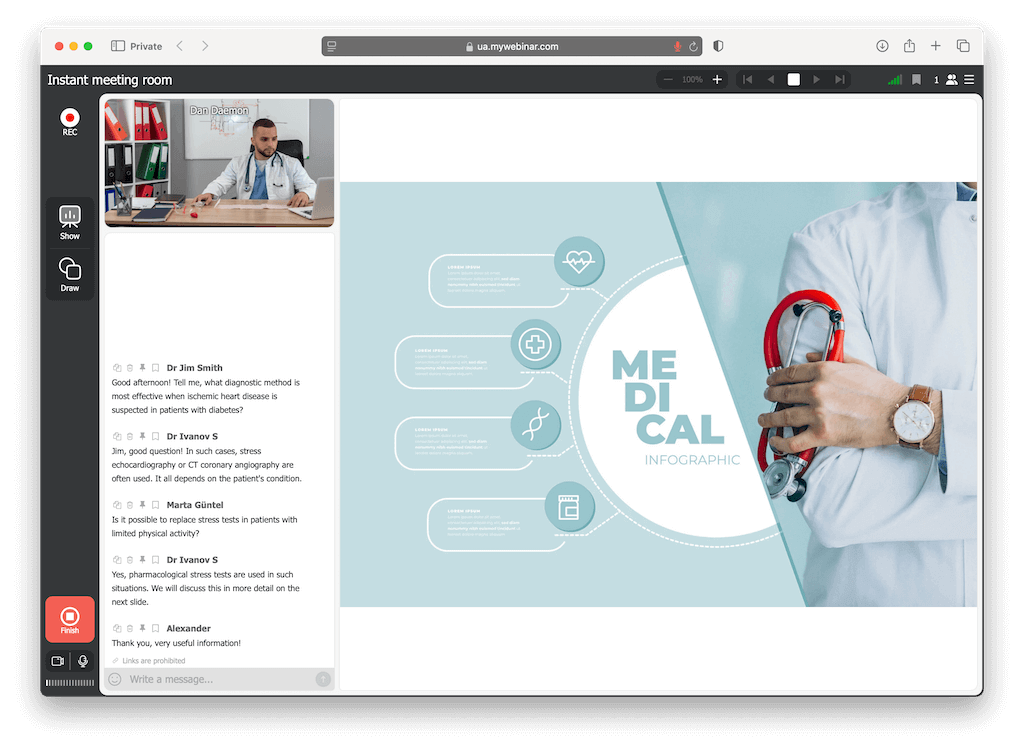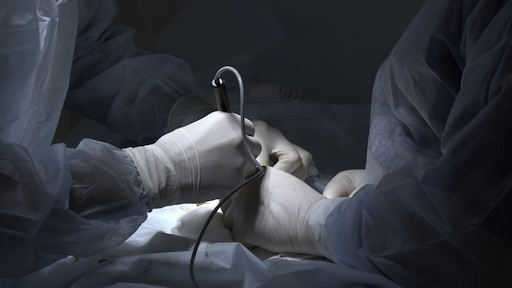
The medical field demands continuous learning and knowledge updates. Webinars enable doctors, nurses, and other specialists to stay informed about the latest treatment methods, analyze complex clinical cases, and exchange insights with colleagues worldwide. After attending a webinar, participants can complete a knowledge assessment to reinforce their understanding and obtain a certificate. This flexible and accessible learning tool helps healthcare professionals stay ahead in their field

Medical webinars provide a flexible and accessible way for medical professionals to learn from experts, analyze clinical cases, earn certifications, and stay updated on the latest medical advancements

Choose a flexible learning format, complete assessments, and earn certificates to validate your expertise. Start your training today
Proudly crafted and hosted in the EU since 2013.
DMARC monitoring by RUA•Watcher.